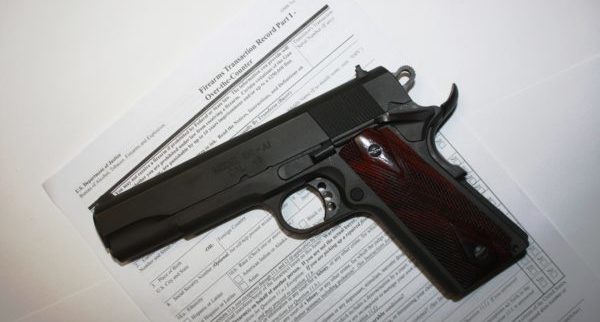
USA Today is reporting that the holiday shopping for firearms could send the number of background checks soaring to a new record by the end of this year, possibly breaking the 27.5 million check record set in 2016, the year most people expected Hillary Rodham Clinton to win the White House.
But with Donald Trump in the White House, there has been something of a lull in gun buying. Until now, it appears.
According to the monthly FBI raw data on National Instant Background Checks (NICS), activity is up. While the raw numbers do not represent actual gun sales, they offer a look at NICS activity. For October 2018, there were 2,086,895 NICS checks initiated. For October this year, NICS logged 2,393,609 checks.
According to USA Today, “Analysts said the numbers suggest the industry may be emerging from the ‘Trump slump’ that followed the election of the pro-gun president.” While there are rights activists who are not that supportive of Trump, none can deny he’s been fulfilling one of his most important campaign pledges, and that is to bring balance to the federal court system, including the U.S. Supreme Court, which now has Associate Justices Neil Gorsuch and Brett Kavanaugh on board.
That could be more important than anyone can gauge right now, should Trump be replaced in November 2020 by any of the Democrats, including anti-gun billionaire Michael Bloomberg, the former New York mayor who recently apologized for his “stop-and-frisk” program that he credited—at the time—for bringing violent crime down in the Big Apple.
But the Washington Post has published an opinion piece by Rafael A. Mangual, a fellow and deputy director of legal policy at the Manhattan Institute for Policy Research, who says now that Bloomberg is running for president, he wants to be “strong on guns and soft on crime.”
Mangual, who is also a contributing editor to City Journal, had an interesting observation that should be required reading for any gun prohibitionist devoted to disarming law-abiding citizens in an effort to prevent violent crime.
“But America’s gun violence is heavily concentrated in urban neighborhoods,” Mangual wrote, “where it is driven largely by perpetrators who, particularly because of criminal pasts, are already prohibited from possessing firearms by existing statutes. Consider the case of Baltimore, where, according to the Baltimore Sun, 85 percent of homicide suspects in 2017 had a criminal record and an average of nine prior arrests. Nearly half of identified suspects had a prior gun offense.”
Those “urban neighborhoods” are largely controlled by liberal Democrats who typically favor tougher gun control laws that only penalize honest gun owners. They don’t seem to reduce violent crime.
Baltimore has recorded more than 300 homicides this year already. Baltimore County murders are up 60 percent, according to WJZ, the local CBS affiliate.
At the far end of the country, Seattle’s murder statistics have steadily climbed since imposition of a gun and ammunition tax in 2016. That tax actually pushed one major gun store out of the city and to a neighboring county. Now, Tacoma—a city 30 miles south of Seattle—has also adopted the same gun tax, with the same goal of reducing violent crime. The city is run by a strictly liberal city council.
If the Black Friday background check results are higher than last year, and USA Today’s forecast holds true, it may be due to a combination of factors, including Bloomberg’s entry into the Democratic race. It will be instructional to watch the data from two states, Virginia and Washington. Democrats took control of the legislature in Richmond, thanks in part to the $2.5 million spent by Bloomberg’s Everytown for Gun Safety Action Fund to steer the elections earlier this month. Since they won, Democrats have been promising a deluge of gun control legislation.
In Washington, Democrats already control the legislature, and the Seattle-based Alliance for Gun Responsibility earlier this week revealed their gun control agenda for 2020.
In short, gun prohibitionists will be pushing hard for everything they can get starting in January, and gun owners—fearful of what the future may hold because they have failed to be involved politically—are stockpiling.